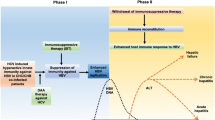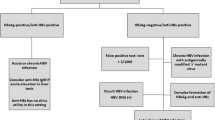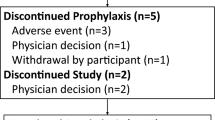Opinion statement
Chronic hepatitis C infection (HCV) is a common problem in patients with kidney disease (Corouge M. et al. Liver Int (2016); 36:28–33, Fabrizi F. et al. Int. J. Artif. Organs (2017); 0). In the past, treatment of hepatitis C infection was very difficult due to poor efficacy, significant side effects, and the multiple comorbidities that affect patients with advanced kidney disease (Pockros PJ et al. Gastroenterology (2016); 150:1590–1598). Significant recent advances in oral interferon-free treatment regimens allow patients with hepatitis C to be treated effectively with minimal side effects. For patients with genotype 1a, 1b, or 4, there are several recommended oral regimens that achieve virologic cure in greater than 95% of patients, even in patients with severe or end-stage renal disease. For other genotypes, specifically 2, 3, 5, and 6, treatment with direct acting antiviral (DAA) agents that are used in patients with normal renal clearance has significant potential for side effects and is not recommended. Patients who are waiting for a kidney transplant or who have received a kidney transplant and have estimated eGFR greater than 30 ml/min can be treated with multiple regimens in an attempt to cure their hepatitis C (Fabrizi F. et al. Int. J. Artif. Organs (2017); 0). Patients with kidney-related complications due to their chronic hepatitis C infection can also be treated with a significant chance of resolution of the complication (Corouge M. et al. Liver Int (2016); 36:28–33, Kamar N. et al. Clin. Nephrol (2008); 69:149–160).
The timing of HCV treatment and kidney transplant depends on the individual transplant centers protocol and the patient’s position on the waiting list for a kidney (Fabrizi F Clin. Liver Dis 2005; 9: 503, viii). USA transplant centers in order to reduce the time on the waiting list have decided to offer HCV-infected patients a kidney from an HCV-positive donor. Treatment of the HCV is then done early after recovery from the transplant surgery. Due to significant advances in developing oral direct acting antiviral agents, we now have safe and effective oral regimens to treat HCV-infected patients with renal disease, including those on hemodialysis, waiting for a kidney transplant, or after a renal transplant.
The purpose of this review is to summarize the currently recommended treatment regimens and provide clinicians with guidance in terms of the efficacy and safety of the new direct acting antiviral agents (DAAs) in treating HCV-infected patients who have advanced kidney disease.
Similar content being viewed by others
References and Recommended Reading
Papers of particular interest, published recently, have been highlighted as: • Of importance •• Of major importance
•• AASLD I. AASLD IDSA hepatitis C guidelines. 2017(July 22) (2017). This website is an up to date set of guidelines published jointly by the AASLD and the IDSA. It is an excellent source of current information about the treatment of HCV.
Aggarwal A, Yoo ER, Perumpail RB, et al. Sofosbuvir use in the setting of end-stage renal disease: a single center experience. J Clin Transl Hepatol. 2017;5(1):23–6.
Alanio C, Nicoli F, Sultanik P et al. Bystander hyperactivation of preimmune CD8+ T cells in chronic HCV patients. Elife. 4, https://doi.org/10.7554/eLife.07916. 2015.
Barsoum RS, William EA, Khalil SS. Hepatitis C and kidney disease: a narrative review. J Adv Res. 2017;8(2):113–30.
•• Bruchfeld A, Roth D, Martin P, et al. Elbasvir plus grazoprevir in patients with hepatitis C virus infection and stage 4-5 chronic kidney disease: clinical, virological, and health-related quality-of-life outcomes from a phase 3, multicentre, randomised, double-blind, placebo-controlled trial. Lancet Gastroenterol Hepatol. 2017;2(8):585–94. This reports a large clinical trial of elbasvir and graszoprevir in 224 patients with stage 4-5 kidney disease
Corouge M, Vallet-Pichard A, Pol S. HCV and the kidney. Liver Int. 2016;36(Suppl 1):28–33.
Davis GL. New AASLD/IDSA hepatitis C virus practice recommendations: an online resource. Clin Liver Dis. 2014;3(5):93–5.
de Kanter CT, Drenth JP, Arends JE, et al. Viral hepatitis C therapy: pharmacokinetic and pharmacodynamic considerations. Clin Pharmacokinet. 2014;53(5):409–27.
Desnoyer A, Pospai D, Le MP, et al. Pharmacokinetics, safety and efficacy of a full dose sofosbuvir-based regimen given daily in hemodialysis patients with chronic hepatitis C. J Hepatol. 2016;65(1):40–7.
Dumortier J, Bailly F, Pageaux GP et al. Sofosbuvir-based antiviral therapy in hepatitis C virus patients with severe renal failure. Nephrol Dial Transplant. 2016.
• European Association for Study of Liver. EASL clinical practice guidelines: management of hepatitis C virus infection. J Hepatol. 2014;60(2):392–420. Guidelines published by the European Association for Study of Liver. These guidelines have not been updated recently to reflect new treatment options available in the US.
Fabrizi F, Bunnapradist S, Martin P. Treatment of hepatitis C in potential kidney and heart transplant patients. Clin Liver Dis. 2005;9(3):503.
Fabrizi F, Donato FM, Messa P. Direct-acting antivirals for hepatitis C virus in patients on maintenance dialysis. Int J Artif Organs. 2017.
Fabrizi F, Dulai G, Dixit V, Bunnapradist S, Martin P. Meta-analysis: interferon for the treatment of chronic hepatitis C in dialysis patients. Aliment Pharmacol Ther. 2003;18(11–12):1071–81.
Fabrizi F, Martin P, Messa P. New treatment for hepatitis C in chronic kidney disease, dialysis, and transplant. Kidney Int. 2016;89(5):988–94.
Fabrizi F, Messa P. Therapy of hepatitis C by direct-acting anti-virals: the end of HCV in dialysis population? Expert Rev Clin Pharmacol. 2015;8(6):785–93.
Gane E, Lawitz E, Pugatch D, et al. EXPEDITION-IV: safety and efficacy of GLE/PIB in adults with renal impairment and chronic hepatitis C virus genotype 1–6 infection [AASLD abstract LB-11]. Hepatology. 2016;64(suppl 1):1125A.
Kamar N, Izopet J, Alric L, Guilbeaud-Frugier C, Rostaing L. Hepatitis C virus-related kidney disease: an overview. Clin Nephrol. 2008;69(3):149–60.
Maruyama A, Partovi N, Yoshida EM, Erb SR, Azalgara VM, Hussaini T. A review of direct-acting antivirals for the treatment of hepatitis C in patients with advanced chronic kidney disease. Nephrol Dial Transplant. 2017;32(1):35–41.
• Molnar MZ, Alhourani HM, Wall BM, et al. Association of hepatitis C viral infection with incidence and progression of chronic kidney disease in a large cohort of US veterans. Hepatology. 2015;61(5):1495–502. A large study of US veterans with HCV infection, delineating the long term non-hepatic consequences of chronic HCV infection
Petta S, Macaluso FS, Craxi A. Cardiovascular diseases and HCV infection: a simple association or more? Gut. 2014;63(3):369–75.
• Pockros PJ, Reddy KR, Mantry PS, et al. Efficacy of direct-acting antiviral combination for patients with hepatitis C virus genotype 1 infection and severe renal impairment or end-stage renal disease. Gastroenterology. 2016;150(7):1590–8. This reports a landmark study using paritaprevir /ritonavir/ombitasvir plus twice-daily dosed dasabuvir to treat HCV genotype 1 patients who had end stage kidney disease
Rostaing L, Alric L, Kamar N. Use of direct-acting agents for hepatitis C virus-positive kidney transplant candidates and kidney transplant recipients. Transpl Int. 2016;29(12):1257–65.
Roth D, Nelson DR, Bruchfeld A, et al. Grazoprevir plus elbasvir in treatment-naive and treatment-experienced patients with hepatitis C virus genotype 1 infection and stage 4-5 chronic kidney disease (the C-SURFER study): a combination phase 3 study. Lancet. 2015;386(10003):1537–45.
Roth D, Zucker K, Cirocco R, et al. A prospective study of hepatitis C virus infection in renal allograft recipients. Transplantation. 1996;61(6):886–9.
Russo MW, Goldsweig CD, Jacobson IM, Brown RS. Interferon monotherapy for dialysis patients with chronic hepatitis C: an analysis of the literature on efficacy and safety. Am J Gastroenterol. 2003;98(7):1610–5.
Smolders EJ, de Kanter CT, van Hoek B, Arends JE, Drenth JP, Burger DM. Pharmacokinetics, efficacy, and safety of hepatitis C virus drugs in patients with liver and/or renal impairment. Drug Saf. 2016;39(7):589–611.
Suda G, Ogawa K, Kimura M, et al. Novel treatment of hepatitis C virus infection for patients with renal impairment. J Clin Transl Hepatol. 2016;4(4):320–7.
Author information
Authors and Affiliations
Corresponding author
Ethics declarations
Conflict of Interest
Bruce Luxon is the sole author and reports no conflicts of interest.
Human And Animal Rights And Informed Consent
This article does not contain any studies with human subjects performed by the author.
Additional information
This article is part of the Topical Collection on Hepatitis C
Rights and permissions
About this article
Cite this article
Luxon, B.A. Treating Hepatitis C Infection in Patients With Chronic Kidney Disease: Our Options Have Improved Greatly. Curr Treat Options Infect Dis 9, 403–410 (2017). https://doi.org/10.1007/s40506-017-0137-5
Published:
Issue Date:
DOI: https://doi.org/10.1007/s40506-017-0137-5




